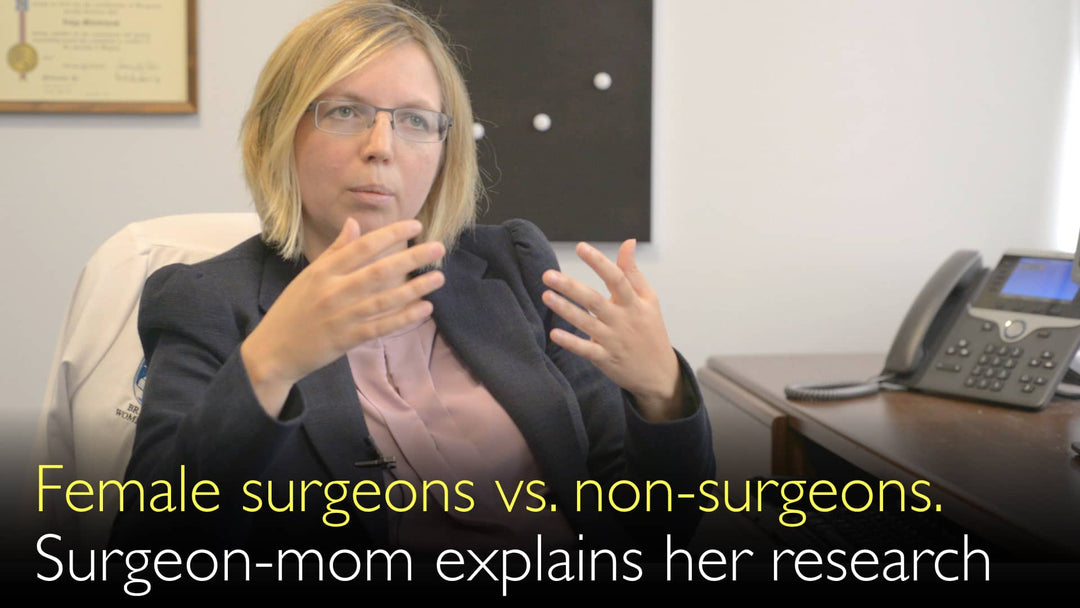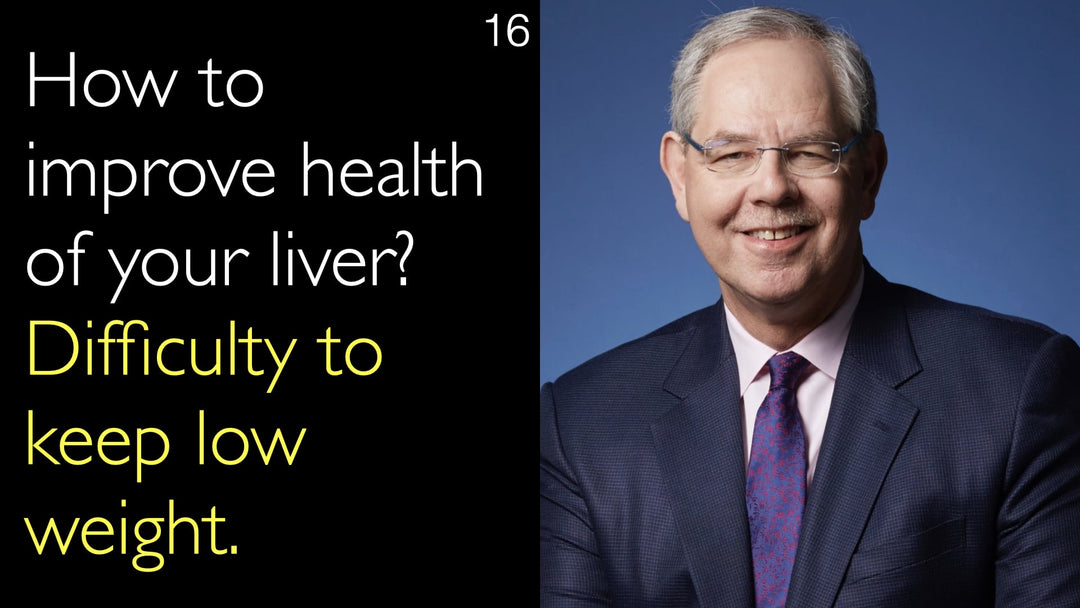Leading expert in surgical training and work-life balance, Dr. Nelya Melnitchouk, MD, explains the unique challenges for female surgeons. Her research reveals shorter maternity leaves and higher financial burdens for women in procedural fields. Dr. Melnitchouk, MD, discusses career satisfaction and the impact of long training on family planning. She offers crucial advice for young female physicians considering both a surgical career and motherhood.
Challenges and Solutions for Female Surgeons: Maternity Leave and Career Satisfaction
Jump To Section
- Research Findings on Female Surgeons
- Impact of Surgical Training Timeline
- Career Satisfaction in Procedural Fields
- Advice for Young Female Physicians
- Maternity Leave in the United States
- Systemic Pressures and Solutions
- Full Transcript
Research Findings on Female Surgeons
Dr. Nelya Melnitchouk, MD, a surgeon and mother, conducted research driven by personal experience. Her studies focus on how medical training affects quality of life and pregnancy outcomes. The research compared female physicians in procedural and non-procedural fields.
Key findings show women in surgery, OB/GYN, and gastroenterology take shorter maternity leaves. They also owe more money to their clinical practices upon returning to work. Dr. Melnitchouk, MD, notes these women report lower career satisfaction. They express a greater desire to change their specialty compared to their peers in non-procedural roles.
Impact of Surgical Training Timeline
The lengthy timeline of surgical training in the United States creates significant pressure. Dr. Anton Titov, MD, and Dr. Melnitchouk discuss the standard path. After medical school, a residency lasts five to seven years. This is often followed by a fellowship for further specialization.
This extended training means physicians often finish in their mid-thirties. This period coincides with a natural decline in fertility. Dr. Melnitchouk's research did not confirm higher use of IVF services among surgeons. She speculates this may be because the study surveyed women who had already successfully had children.
Career Satisfaction in Procedural Fields
Career dissatisfaction is a major issue for female surgeons. The combination of a high-pressure career and young family is intensely challenging. Dr. Melnitchouk's research surveyed both residents and attending physicians.
She found the issues were consistent across both groups. The strain of balancing clinical duties with family life leads to burnout. This is a critical factor in why women in procedural fields might reconsider their career path.
Advice for Young Female Physicians
Dr. Nelya Melnitchouk, MD, offers direct advice based on her findings. Her primary recommendation is not to delay having children if it is a life goal. She acknowledges that pregnancy during residency is difficult.
However, Dr. Nelya Melnitchouk, MD, emphasizes that it is also challenging as an attending physician. There is no perfect time. She advises young doctors to identify their personal priorities and then pursue them decisively.
Maternity Leave in the United States
Maternity leave policies in the US are inconsistent and often inadequate. For medical trainees, leave is typically six to eight weeks. The length can depend on whether the delivery was a C-section.
Attending physicians may be eligible for up to 12 weeks off under the Family and Medical Leave Act (FMLA). A critical flaw is that FMLA does not mandate paid leave. Whether leave is paid depends entirely on the specific employer and clinical practice arrangement.
Systemic Pressures and Solutions
Systemic pressures often force female surgeons to take less maternity leave. Covering a surgeon's patients places a burden on partners. This creates a sense of professional obligation to return to work quickly.
There is also a significant financial burden on the healthcare system. Dr. Melnitchouk concludes that the United States must develop a better method. A system providing universal paid maternity leave is essential for supporting surgeon mothers and their families.
Full Transcript
Dr. Anton Titov, MD: You study how medical and surgical training impacts quality of life, pregnancy results, and career satisfaction in female physicians. You have published several very interesting research articles on this topic. What have you discovered in your research on female physicians?
Dr. Nelya Melnitchouk, MD: Yes, this is actually a project that was of personal interest to me because I am a surgeon mom. I have two kids. We made several interesting discoveries.
Women in procedural fields take shorter maternity leaves. Women owe more money to their clinical practices when they have to return to work. Procedural medical specialties are surgery, obstetrics and gynecology, and gastroenterology.
Women have less career satisfaction. They would like to change their specialty much more frequently than female physicians in non-procedural fields. One cause is probably the selection bias as well, because we surveyed women who are early in their child-rearing age.
All their kids are young, up to five or six years old. They are in the trenches of clinical practice. They obviously have to deal with their professional career. At the same time, female physicians have to deal with their family. It is more difficult to combine a surgical career and family.
Dr. Anton Titov, MD: Let’s explain medical education in the United States for our international viewers. After young physicians in the United States finish medical school, they usually undergo five years of the residency training program. Residency program takes five years, especially in procedural fields. They work as physicians, but that is an extra strain on a person. Then they become attending physicians, like you are now.
You surveyed female physicians mostly during the residency training program or fellowship specialty training? Or were they already attending physicians?
Dr. Nelya Melnitchouk, MD: We actually surveyed both residency trainees and attending physicians. We surveyed physicians who were in training and physicians who already were done with the training. There was no huge difference in the length of maternity leave or issues that both groups are dealing with.
It is true, in the United States the surgical training is very long. People do medical school and then they do residency for about five to seven years. Then they do extra fellowship. When you are done with all the training, you are in your mid-thirties. That is the age where your fertility starts to decline.
We did look at that. We studied whether female physicians used more IVF services. We studied whether female physicians in procedural fields had problems to become pregnant. We did not confirm that theory, but it might be because we surveyed all the women who already had kids. So they were successful in achieving childbearing.
Dr. Anton Titov, MD: You have done and published research on career satisfaction and challenges of female surgeons. What advice would you give to younger female physicians? Maybe they are finishing medical school or just starting their residency? What should they do?
Dr. Nelya Melnitchouk, MD: Don't wait to have kids if that's one of your goals in life. Because life is unpredictable and you never know what can happen. Being pregnant during residency will be difficult. But being pregnant and having children is also difficult when you are an attending physician.
Just figure out what is important for you. Then achieve your goal.
Dr. Anton Titov, MD: What is a typical maternity leave period in the United States, if there is one?
Dr. Nelya Melnitchouk, MD: Maternity leave for physicians varies. It depends. For trainees it's six to eight weeks. Maternity period’s length also depends if you have the C-section or not. When you are an attending physician, you can take up to 12 weeks. But some maternity leave is paid, some of it is unpaid. It depends on what clinical practice situation you are in.
In the US we follow FMLA rule. This rule basically tells the employers that they have to give 12 weeks off to a person who just had a baby. But it does not mandate paid leave. The reality of the situation is difficult.
There is a lot of pressure to take less time for maternity leave in the high-pressure clinical career environment. Definitely. Because, first of all, another physician has to look after your patients. There is an increased burden on your partners potentially, although you try to pay them back if they're sick or if somebody else takes maternity leave.
There is also a financial burden on a system. Here in the United States we really have to figure out the better method to provide paid maternity leave to all the mothers.








